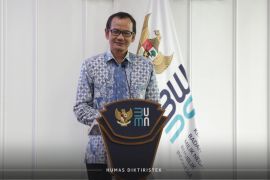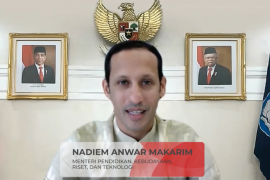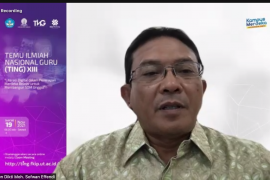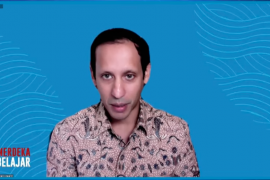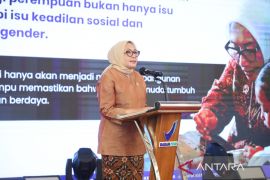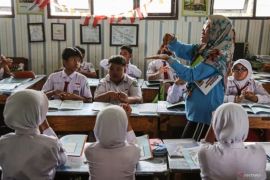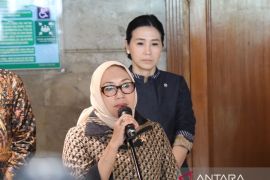"The Education, Culture, Research, and Technology Ministerial Regulation (Number 30 of 2021) regarding the Prevention and Handling of Sexual Violence in Higher Education details the forms of action with the consequences of administrative sanctions, recognizes the possibility of these forms of sexual violence developing, and regulates preventive measures to reduce losses due to cases of sexual violence," he said virtually here on Friday.
The ministerial regulation aims to prevent and handle at least 11 possible incidents of sexual violence that can be experienced by students, lecturers, education staff, campus residents, and the general public who interact with the academic community, Makarim added.
For example, Article 4 of the regulation states that if one college student, X, is subject to sexual violence committed by another college student, Y, the task forces of the two campuses will refer to the ministerial regulation to address the issue, he explained.
In the process of handling sexual violence cases, there is often confusion regarding actions that can be taken or considered as sexual violence, he noted. Lack of understanding related to this often complicates the process of handling sexual violence cases in the university environment, he added.
According to Article 5 of the regulation, acts of sexual violence can manifest in many forms, ranging from verbal, non-physical, physical, and those perpetrated through information and communication technology, Makarim said.
The regulation aims to offer clarity and seeks to eliminate the grey areas that have existed all along, the minister added.
"What is the grey area? The grey area is activities that are (not) in black (or) white, (where it is unclear) whether they can be considered as sexual violence or not,” he explained.
Makarim highlighted that currently, Indonesia is experiencing an alarming trend of sexual violence in universities, describing it as an emergency.
Sexual violence is quite difficult to prove, but has a long-lasting impact on victims, thus, universities must address any report of sexual violence, he stressed.
The response would include assistance, protection, recovery of victims, and the imposition of administrative sanctions, he added.
Minister Makarim urged the academic community to actively contribute to protecting the victims, as stipulated in Articles 10 through 19 of the regulation.
"The assistance in question includes counseling, advocacy, health services, legal assistance, social and spiritual guidance, as well as assistance for persons with disabilities," he elaborated.
The protection includes reassurance of the continuity of education or work, providing safe houses, as well as protection of victims or witnesses from threats they receive due to their testimonies, he said.
The recovery process for victims will need to involve stakeholders, after obtaining the victims' or witnesses' consent, without infringing on their right to learn or employment, Makarim said. Furthermore, administrative sanctions will be imposed accordingly and can range from group sanctions, individual sanctions, and sanctions on universities, he added.
"Sanctions on perpetrators must be based on the impact of their actions on the condition of the victim and the campus environment, not a large chance of the perpetrator repenting. The rector and director of universities are fully responsible for implementing the Education, Culture, Research, and Technology Ministerial Regulation about Prevention and Handling of Sexual Violence in Higher Education, and (they) can apply sanctions that are heavier than those recommended by the task force," Makarim said.
The task force at the university level, which will assist the rector and director in the implementation of the ministerial regulation, will need to understand how to prevent sexual violence, address reports, ensure the confidentiality of the identities of parties directly connected to the reports, and maintain the independence of the task force, the minister said.
If the decision of the higher education leader is deemed unfair, the victim and/or the reported party may ask the director general of higher education, research, and technology (Dirjen Diktiristek) and/or the director general of vocational education (Dirjen Diksi) to conduct a re-examination, he added.
The rector and director must routinely monitor and evaluate all activities to prevent and handle sexual violence as well as the performance of the task force on campus, Makarim said.
Related news: Alarming trend of sexual violence at university level: minister
Related news: Rectors approve regulation on preventing, handling sexual violence
Related news: Kowani supports ministerial regulation on sexual violence prevention
Translator: Indriani, Mecca Yumna
Editor: Sri Haryati
Copyright © ANTARA 2021


